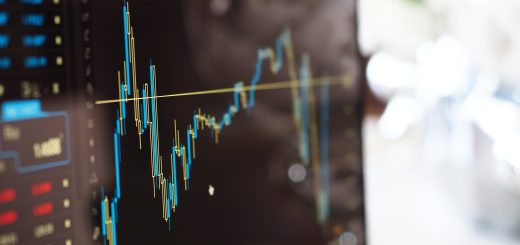Steve Cohen casts doubt on Fed’s ability to get to 2% inflation target
Steve Cohen, the hedge fund billionaire who owns the New York Mets, said Wednesday that the Federal Reserve faces a tough road getting inflation down to its 2% target.
The Fed thinks its eventually going to come down to a 2% inflation rate. I think thats going to be hard, Cohen told CNBCs “Squawk Box.”
The Point72 Asset Management founder and CEO cited underemployment in the US as reason inflation will remain stubbornly high, arguing a lack of workers could create upward pressure on inflation if economic growth remains strong.
If growth is too fast, then you start getting constraints on labor and wages go up, and that may be a problem,” he added. “Were in one of these problems where I dont think many people know exactly what is going to happen.”
Despite his skepticism about inflation hitting 2% — a figure the US economy hasn’t seen in more than a decade — Cohen said, “I think inflations been somewhat contained.”
“I think ultimately it will come down to: is that a true statement or not, Cohen — also the chairman and CEO of the New York Mets — told CNBC.
Representatives for Point72 declined The Post’s request for comment.
Per the latest Consumer Price Index which tracks changes in the costs of everyday goods and services US inflation rose a stiffer-than-expected 3.2% in February.
Yet another yearly increase in consumer prices means that the CPI reading has yet to drop on a yearly basis since President Joe Bidens term began in January 2021.
The closest the economy has gotten to a yearly decrease since Biden took office was in July 2022, when the inflation rate remain unchanged, at a sky-high 8.5%.
On a monthly basis, prices also edged 0.4% in February, driven primarily by the indexes for shelter and gasoline, which contributed to more than 60% of the advance, the Bureau of Labor Statistics reported.
Despite remaining elevated, February’s CPI marks a stark slowdown from inflation’s peak at a staggering 9.1% in June 2022, which prompted Fed officials to begin a rate-hiking campaign that lifted the benchmark federal funds rate 11 times in 2022 and 2023, landing on its current 22-year high, between 5.25% and 5.5%, in July 2023.
March’s CPI reading is set to be released on April 10.
Wall Street is widely hoping for a figure that shows a month-over-month slowdown in inflation as it would prompt central bankers to make the first of three anticipated rate cuts this year sooner rather than later.
Separately on Wednesday, Fed Chair Jerome Powell reiterated that the US central bank has time to deliberate over its first interest rate cut given the strength of the economy and recent high inflation readings.
“Recent readings on both job gains and inflation have come in higher than expected,” Powell said in remarks prepared for delivery at the Stanford Graduate School of Business.
“Recent data do not, however, materially change the overall picture, which continues to be one of solid growth, a strong but rebalancing labor market, and inflation moving down toward 2% on a sometimes bumpy path.”
“Given the strength of the economy and progress on inflation so far, we have time to let the incoming data guide our decisions on policy,” Powell said, with decisions made “meeting by meeting.”
“If the economy evolves broadly as we expect,” Powell said, he and his Fed colleagues largely agree that a lower policy interest rate will be appropriate “at some point this year.”
But that will only happen once policymakers “have greater confidence that inflation is moving sustainably down” to the central bank’s 2% target, Powell said — also a repeat of language the Fed has adopted of late to reflect its effort to balance the risks of cutting interest rates before inflation is truly controlled with the risks of suppressing economic activity more than is needed.
With Post wires


